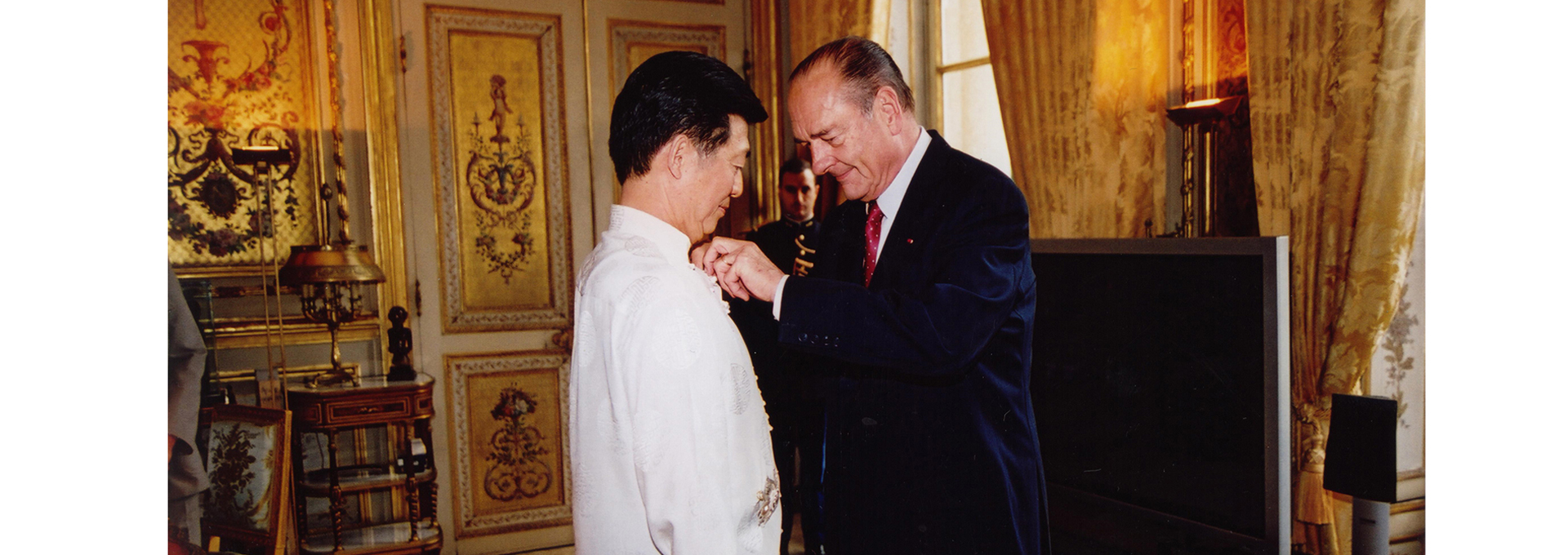Diplomacy

On Life
If I could live my life again, I would still choose to be a diplomat.
When a person starts his/her working life, four qualities are most important: 1. Respect for others, 2. Sincerity, 3. Diligence, 4. A sense of honor
I have always tried to do my very best in whatever I undertake. I will not be satisfied with muddling through.
I love a challenge. I believe life is full of them, and that each is a test to draw on one’s potentials and find the meaning of existence.
On Diplomacy
Times have changed. The age of war and revolution has given way to peace and development. The rules of the game have also changed, from zero-sum to win-win. We must not make the mistake of being physically in the 21st century but mentally in the past.
In China’s international relations, we must hold high the banner of peace, development, cooperation and win-win. Those who pursue war are acting counter to the spirit of the times and will come to a bad end.
China’s forces of national defense must be modernized, but this in no way means we favor war. However, should we be attacked, we will fight back without hesitation.
We must not only love our country, but also the whole of mankind. Patriotism and internationalism must go hand in hand. We must learn to defend our national interests while also caring for the common future of the human race.
As China becomes more prominent in the world, we must occupy the moral high ground. The reason why many countries are willing to work with us is because we have not monopolized the fruits of development, but are willing to share them with all.
Narrow-minded nationalism destroys everyone. The CCP has always been on guard against it and has from the start advocated that patriotism and internationalism should go hand in hand.
The Chinese nation is quite remarkable, especially in its ability to withstand major disasters. We Chinese are not afraid of major disasters. However, we must guard against the misjudgements and arrogance. Our history has shown that arrogance could cause serious damage to our country and people.
In diplomacy, “soft” and “hard” are means, not ends. The test of success of diplomacy is whether or not the national diplomatic goal has been reached. The essence of foreign relations is to safeguard the most important national interests, and also to win the sympathy of the world. At this time, China’s greatest national interest is to sustain the momentum of development.
On Public Diplomacy
We should lift the mysterious veil over diplomacy. The 21st century is a time for the Chinese nation to look outward, and we need more of our people to understand diplomacy, and learn how to interact with others.
As China opens more to the world, diplomacy will no longer be limited to political diplomacy but all professions and sectors are involved. It is wrong to think diplomacy is just for the Ministry of Foreign Affairs. So let us welcome the era of big diplomacy.
Explaining China to the world is not only the business of leaders and diplomats, but also of all Chinese who go abroad, and all those who come in contact with foreigners in China. That is what public diplomacy is all about.
What should we explain about China to the world? The most important is that “China will unswervingly follow the path of peaceful development,” and that “China will unswervingly adhere to the open strategy of mutual benefit and win-win.” The Chinese nation is a peace-loving nation, and the culture of peace is an essential ingredient of the Chinese culture.
How to be a worthy citizen of a major power? Three most important things: remain modest, keep a cool head, and be rational.
We should not get angry easily when we hear foreigners criticizing us. If they are right, we should correct things. If not, then instead of getting upset, we should learn to respond with reason.
The power of culture is also a form of competitiveness. China’s greatest contribution to the world in the 21st century is not “Made in China” but Chinese culture. If more people can learn about Chinese civilization with its tradition of peace and diversity with harmony, they will then have a better understanding of China’s determination to follow the path of peaceful development.
On Art of Communication
Communication with others makes life better for individuals, it also makes the world a better place.
Six principles for successful communication: respect, sincerity, flexibility, effectiveness, listening, and civility.
Respect means that to win respect one must first give it; sincerity means being honest, which builds credibility; flexibility means knowing when to press forward and when to fall back; effectiveness means making the most of the opportunity to get the best result; listening means learning how to listen carefully; civility means being courteous and generous.


